
Aim for a no-surprises performance review.
Regular performance conversations are critical in a remote environment. Navigating the complexities of managing remote teams can be made simpler by setting clear performance expectations, measuring productivity effectively, and providing constructive feedback.

Welcome! (To your own home office.)
Creating an onboarding plan helps remote employees feel welcomed and prepared from day one. Start by defining clear objectives for what you want to achieve during the onboarding process. These objectives should align with both the company’s goals and the employee’s role-specific needs.
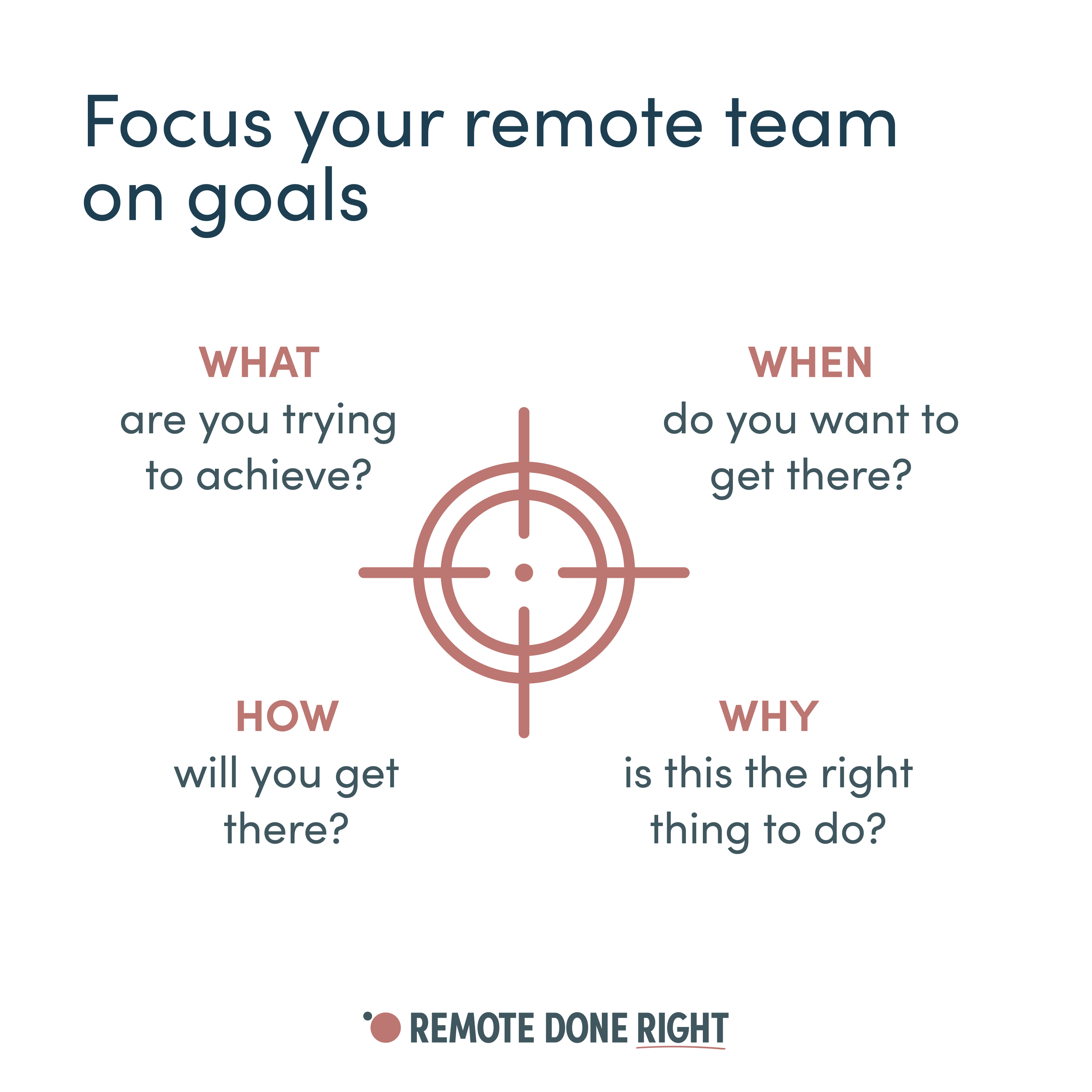
Know your purpose – goal setting for remote teams.
With teams spread across various locations, setting clear and achievable goals is crucial to ensure everyone stays on track and works towards a common objective.
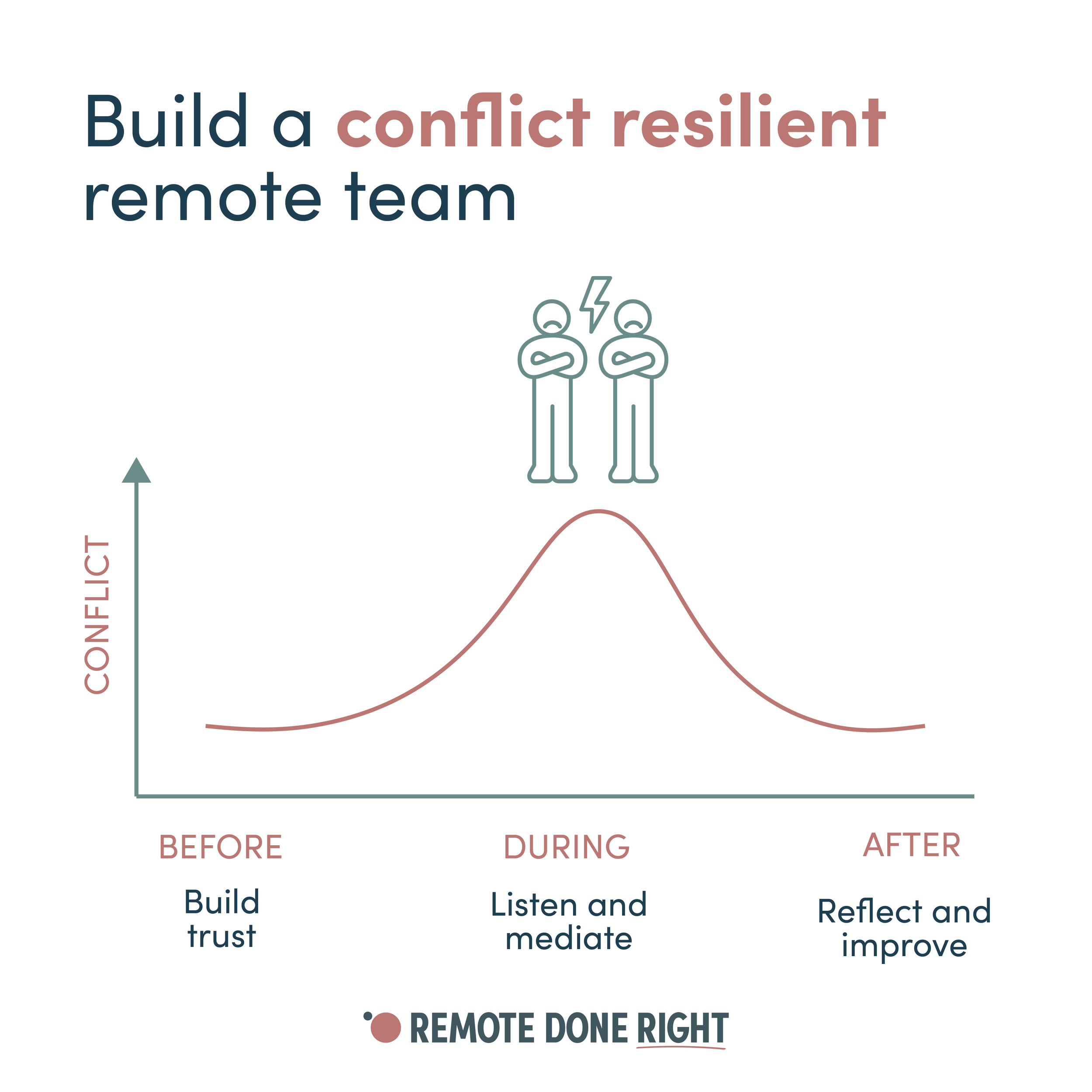
Build a conflict resilient remote team.
Conflict in remote teams can arise from various sources. Recognising these sources is the first step towards addressing and resolving them effectively.
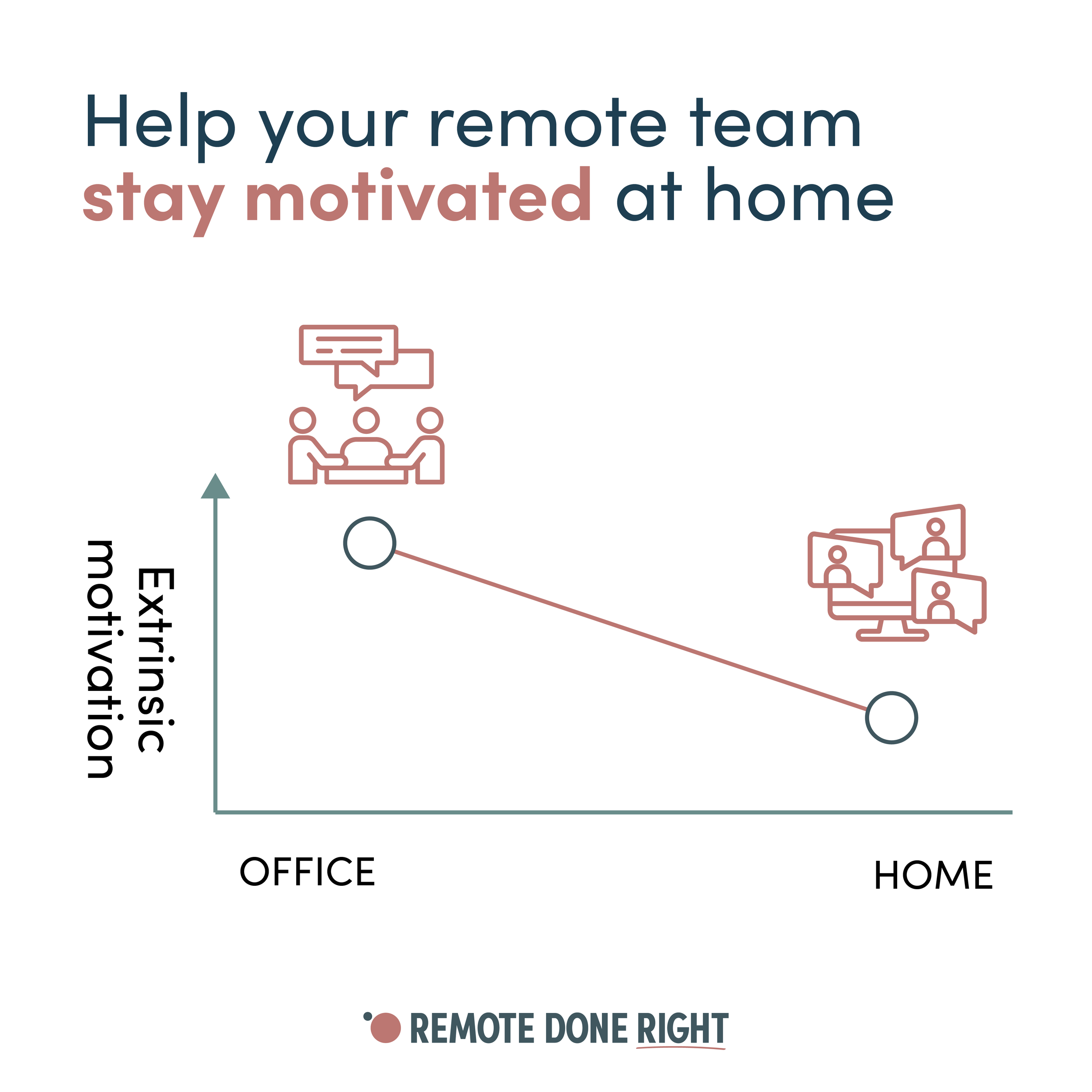
Master productivity without your boss over your shoulder.
The ability to work independently is one of the benefits of remote work, however it can be easy to lose focus. Build internal accountability so you can maintain productivity while working remotely.

Remote leadership is a level up from in-office leadership.
Focus on building the skills you need to effectively support your remote team.

Supporting mental health in remote teams.
Managing a remote team can make it hard to know how people are feeling. Don’t leave it up to chance, pay attention to changes and keep lines of communication open.

Mastering virtual meetings: tips and tools for success.
Running an engaging remote meeting takes skill and planning. Virtual meetings can be a time sink. With a bit of planning and consideration, you can make them engaging and productive.

Remote team missing deadlines? Go back to basics.
Don’t get hung up on the challenges of remote leadership – the rules are the same. Pave the way to success by making it clear what people have to do, when they have to do it and then proactively monitor and review progress.

What are the factors that help motivate your remote team?
When you focus on understanding what drives your team, setting clear goals, encouraging continuous learning, fostering a positive environment and recognising achievements, you help to keep your remote team motivated and focused on organisational goals.
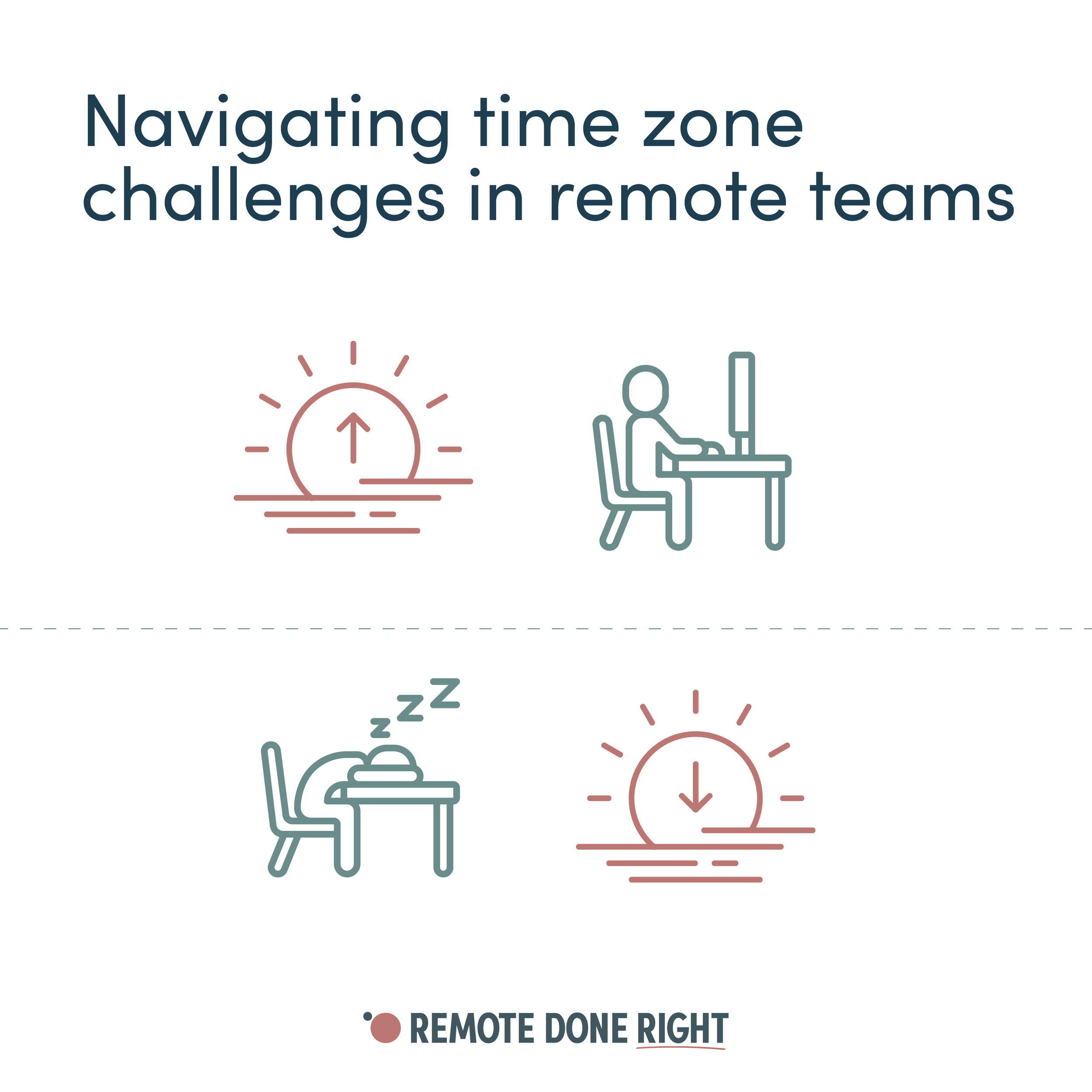
Navigating time zones: strategies for effective remote team collaboration.
When your remote team are not just working from home but working around the world, it’s important to agree on ways you can stay connected and collaborate effectively.

When people feel valued, they commit.
When organisational goals support individual goals, employees feel valued. People who feel valued are more likely to engage with the goals of the organisation and work harder to achieve them.

Why can't I just have a blanket rule for remote work?
The temptation to implement a blanket rule for all hybrid or remote workers is driven by the desire for simplicity and uniformity. Leaders face the challenge of designing flexible work arrangements that maintain productivity while addressing the diverse needs of their teams.
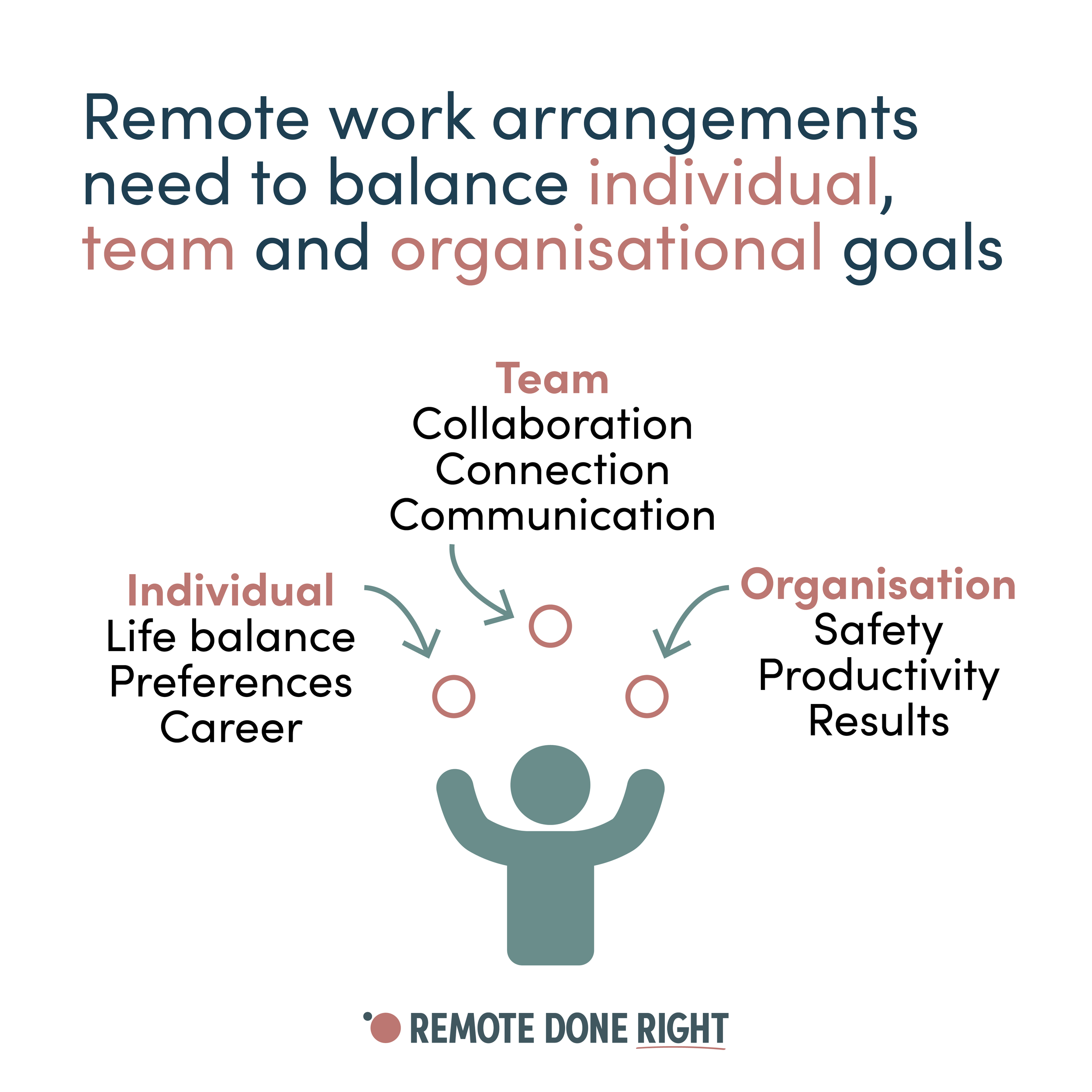
Create the perfect remote work plan: a leader's guide.
Teams need to collaborate and compromise on remote work arrangements to come up with a plan that works for everyone.
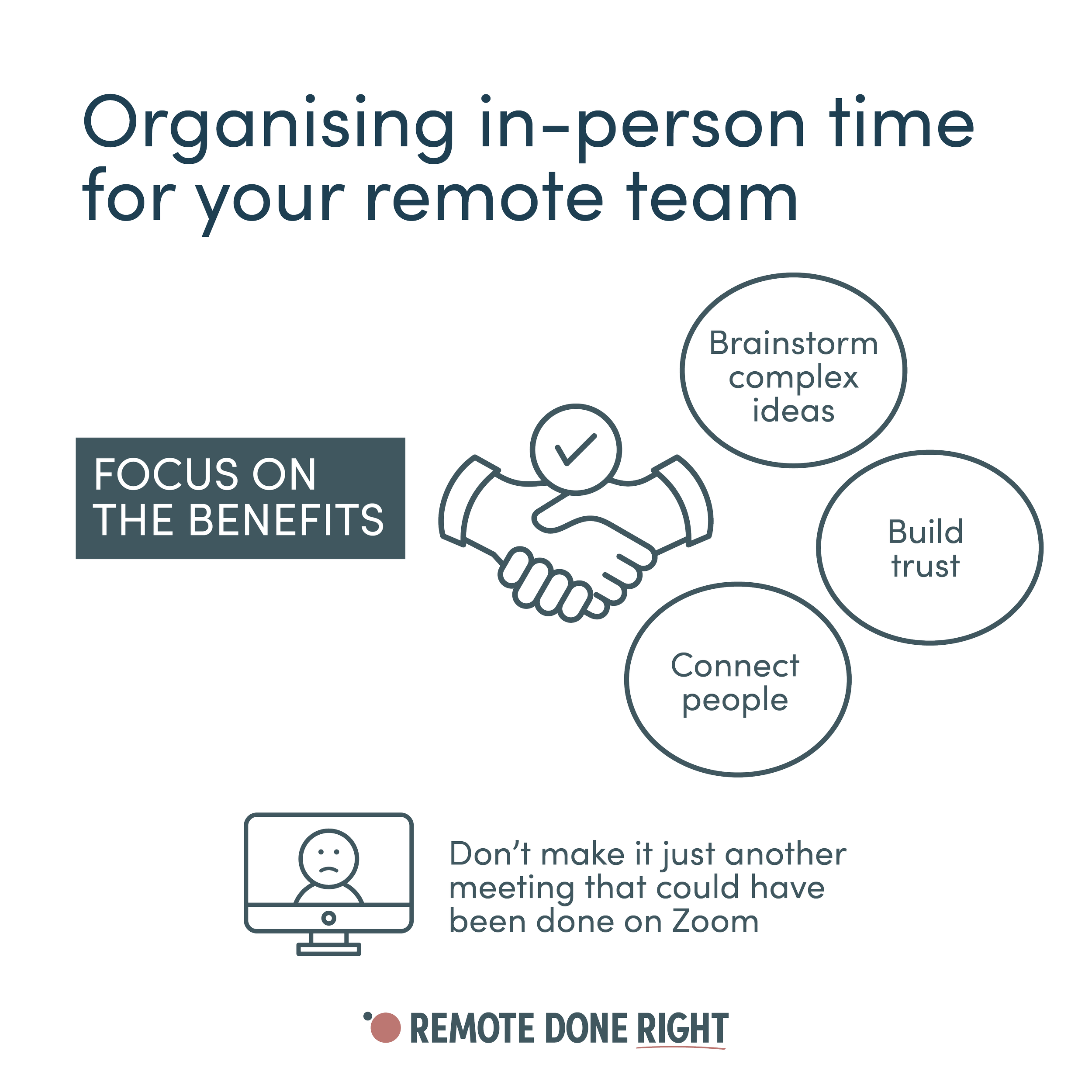
Convince the introverts: organising in-office time for your remote workers.
The thought of remote workers returning to a traditional office setting, even for a single day, often meets with scepticism and reluctance. However, a well-planned and purpose-driven office day can offer surprising benefits that enhance team dynamics, boost productivity, and rejuvenate company culture.
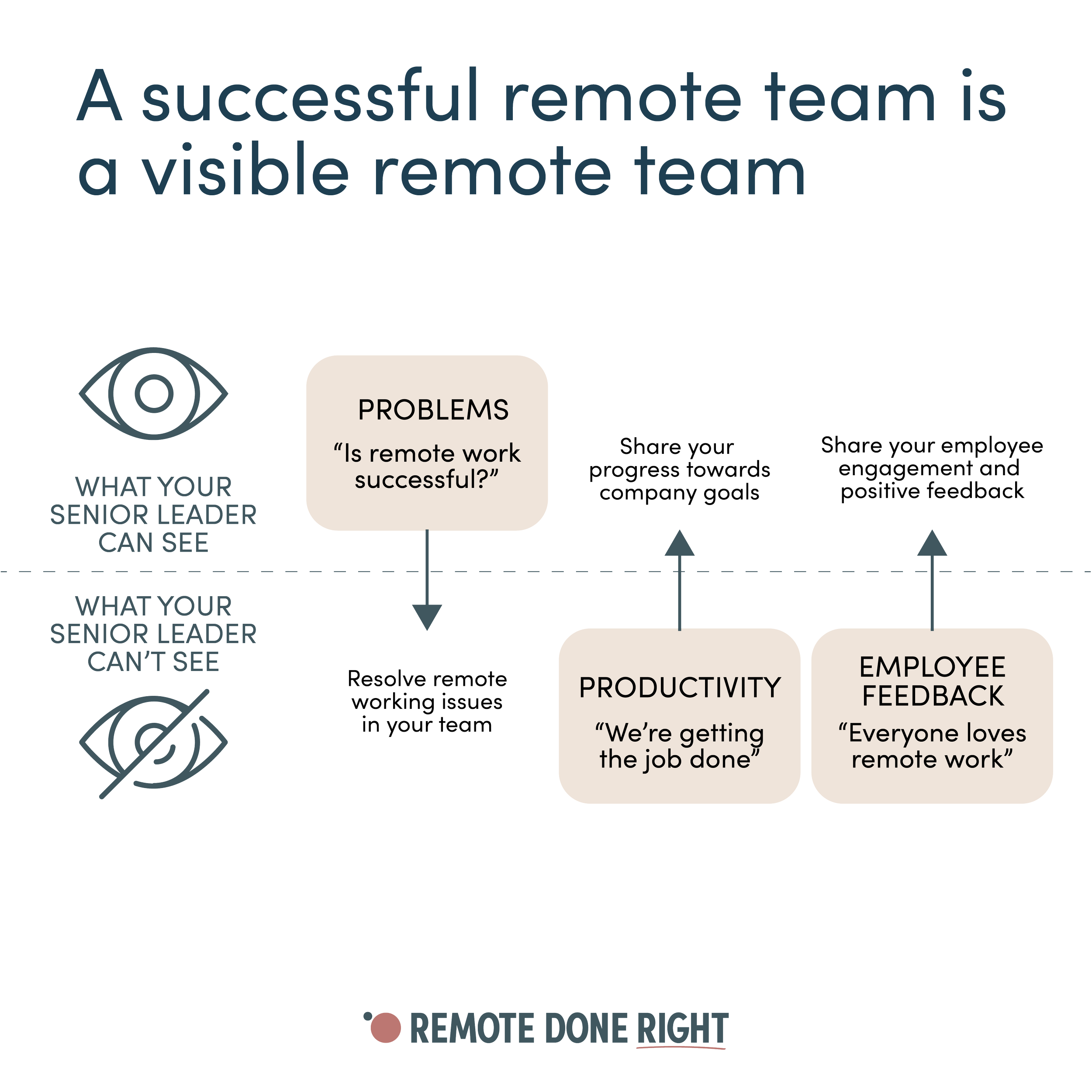
Don’t ask how many people are in the office. Ask is the job getting done.
If you lead a team that’s successfully working from home, but you’re facing the scrutiny of senior leaders who want everyone back in the office, make sure you’re giving them evidence that the work is getting done, your people are happier and you have the capacity to resolve issues.

Remote work shouldn’t mean work all the time.
The wellbeing of your team should be your number one priority. Recognise and address the signs of an unhealthy work / life balance before your team burn out.

Building culture in your remote team.
Culture is not about mandating “fun” team activities, it’s the shared values, beliefs, and behaviours that shape how employees interact and work together.

You can't trust people you don't know.
In an office trust builds organically. In a remote team you need to intentionally schedule activities that build trust.
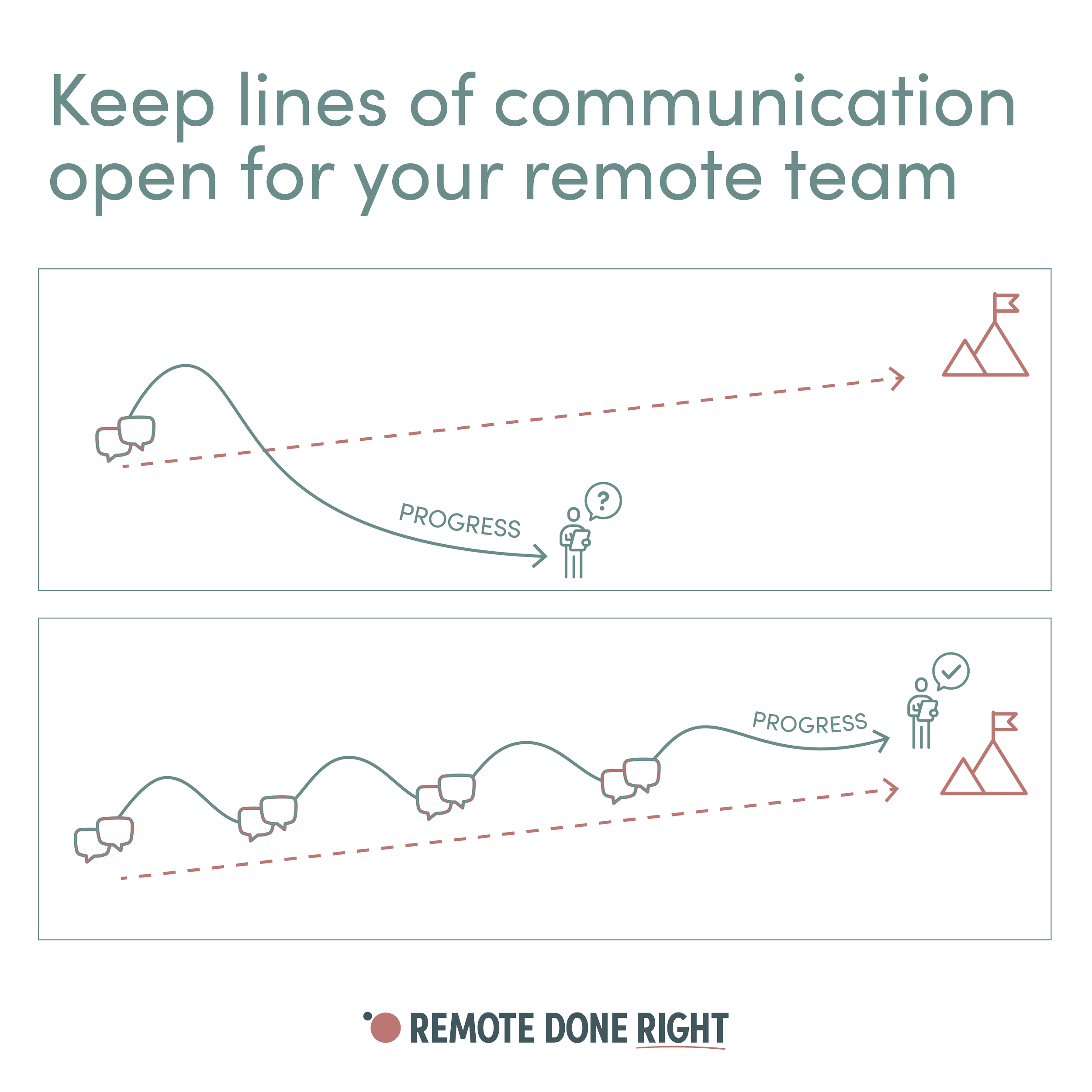
Keep lines of communication open for your remote team.
Miss a few updates when your team is in the office, no big deal. Miss a few updates in a remote environment and things can go downhill fast.
